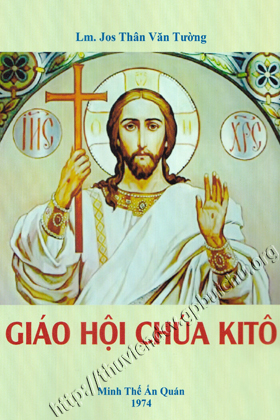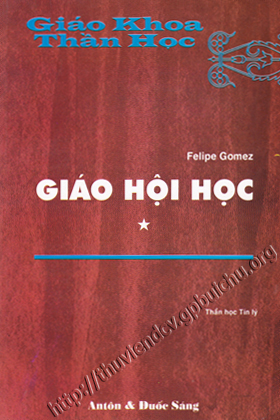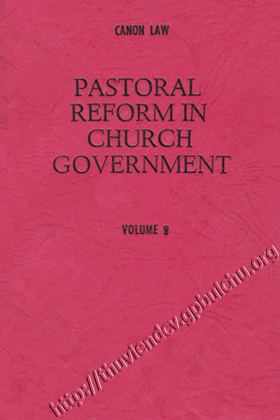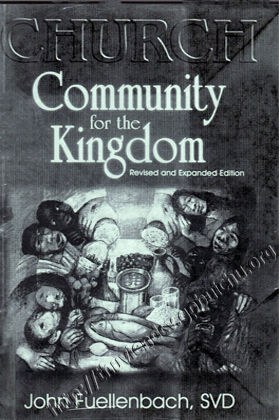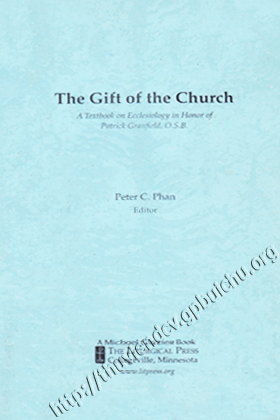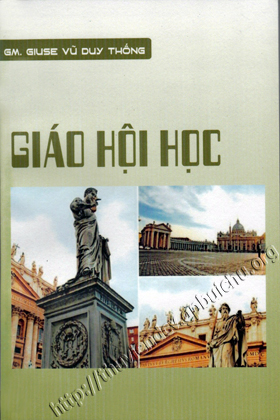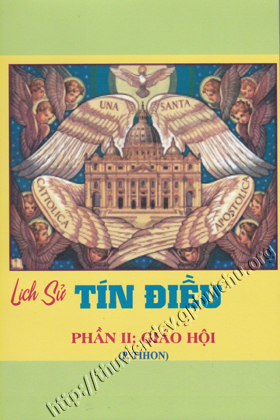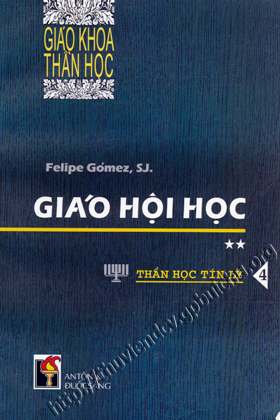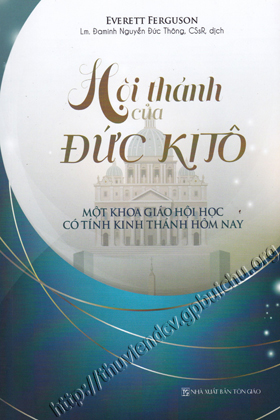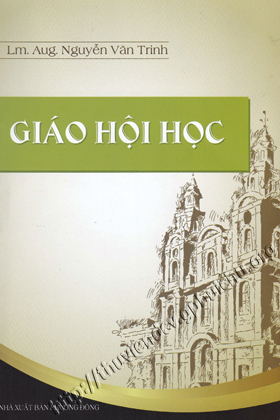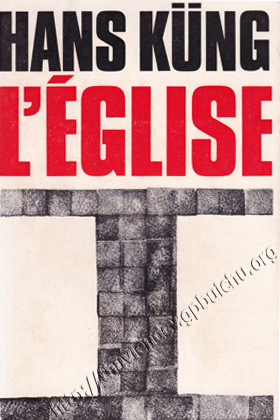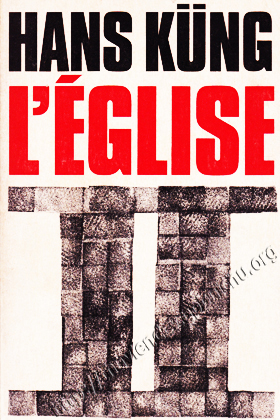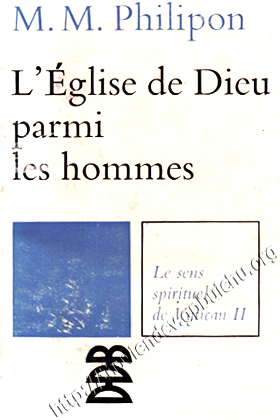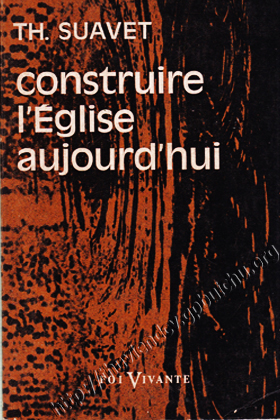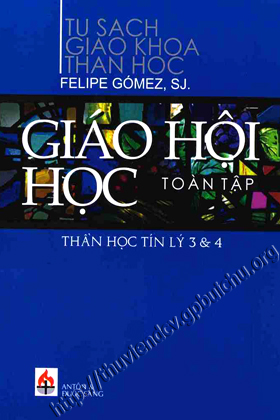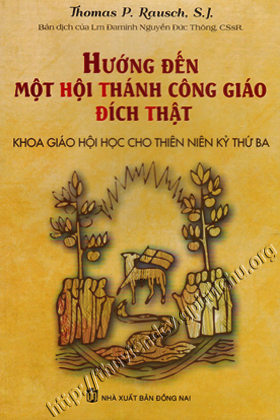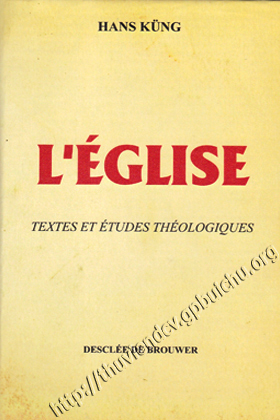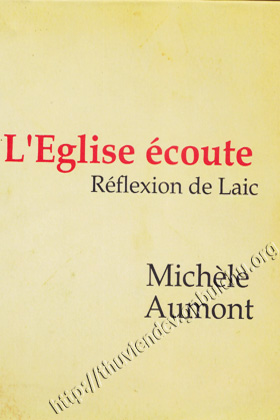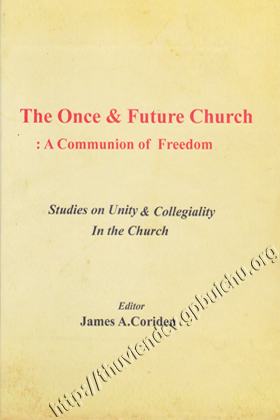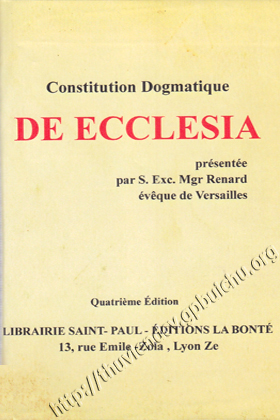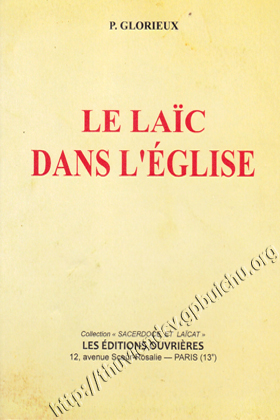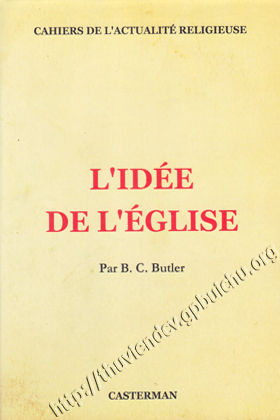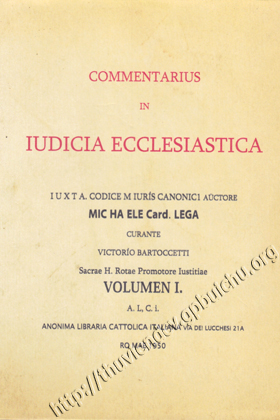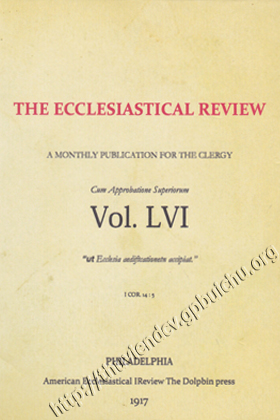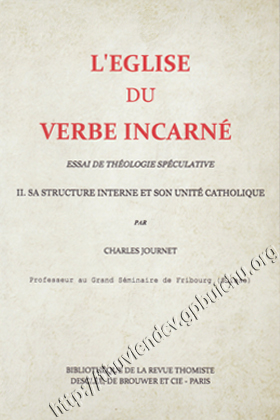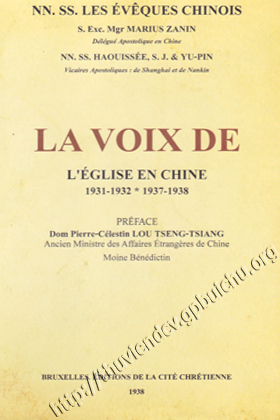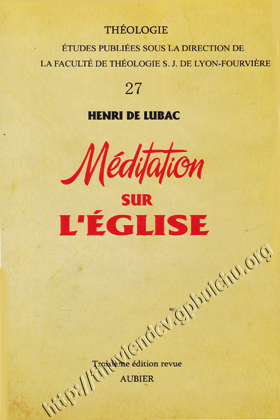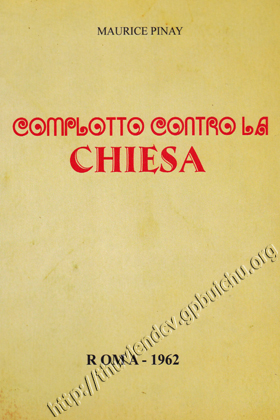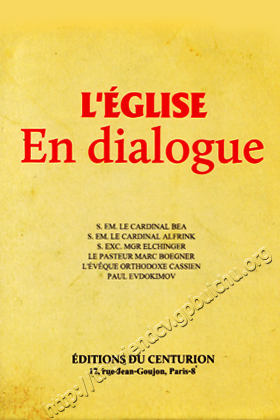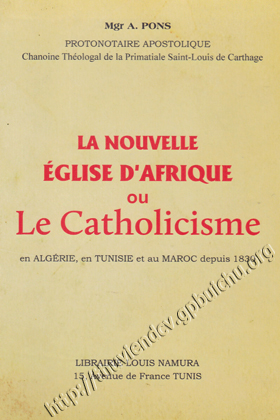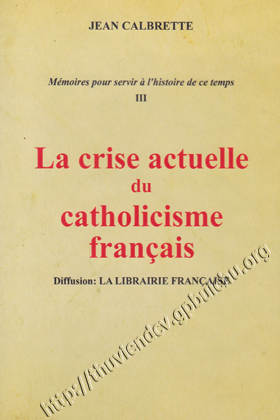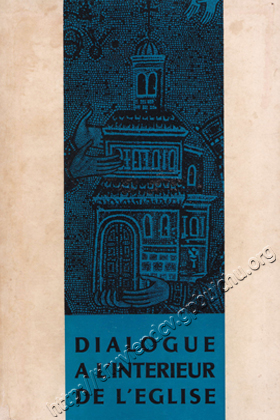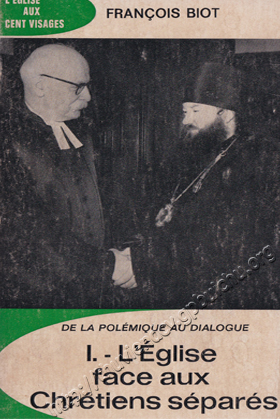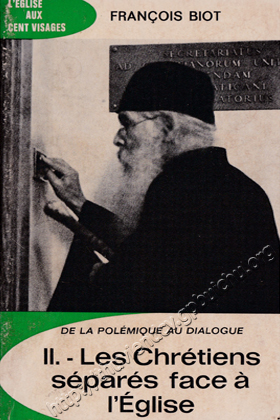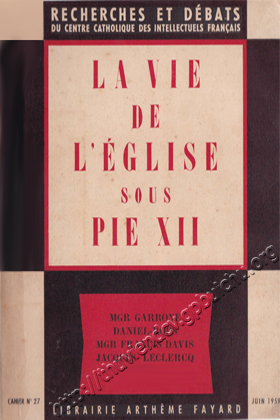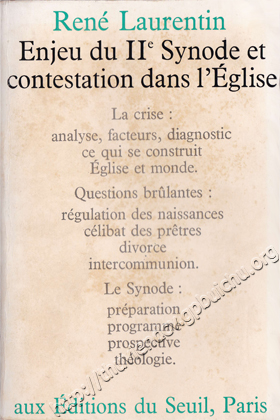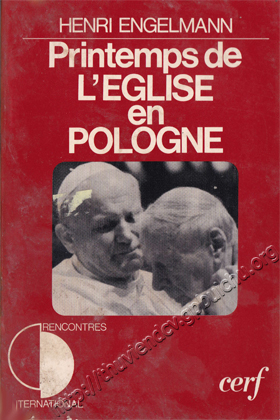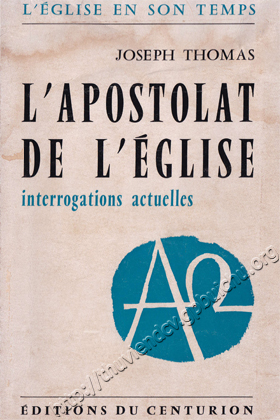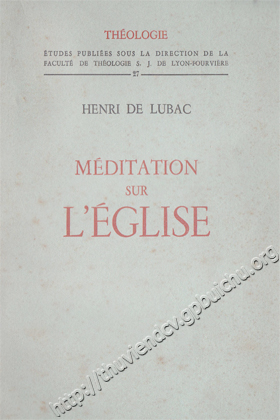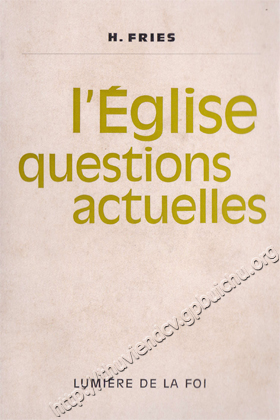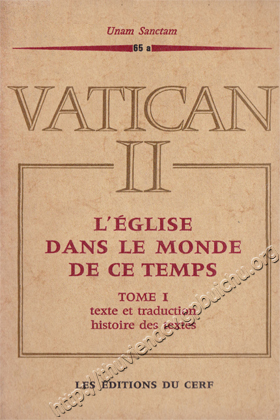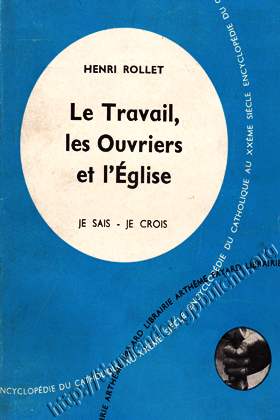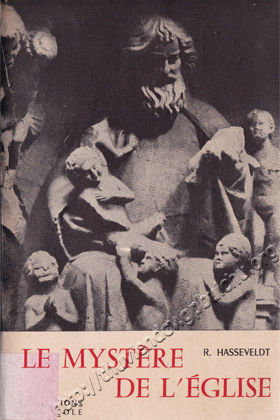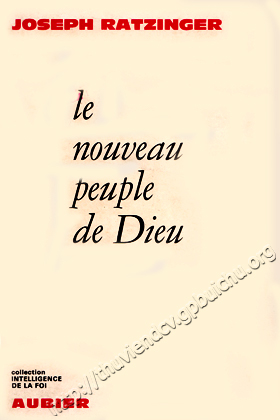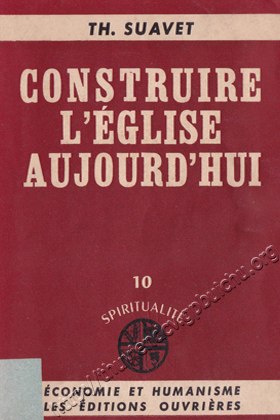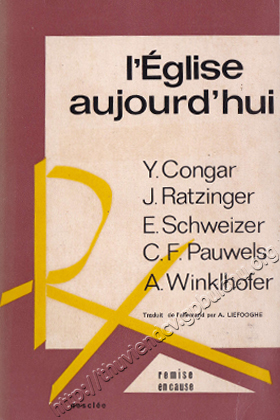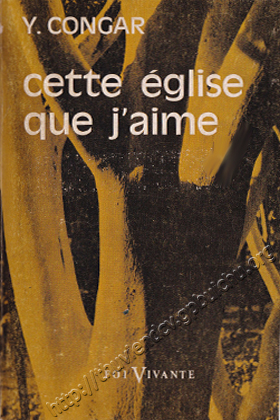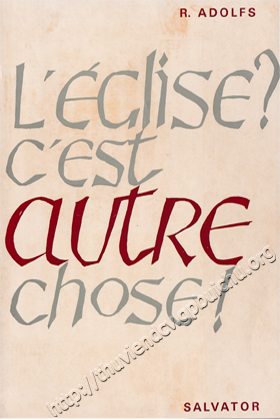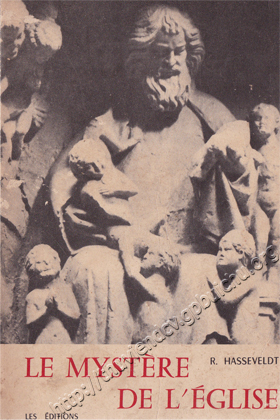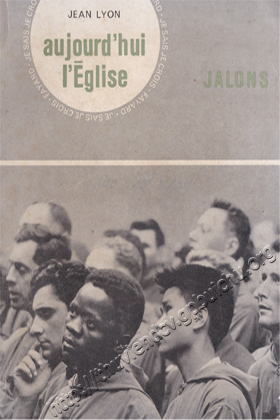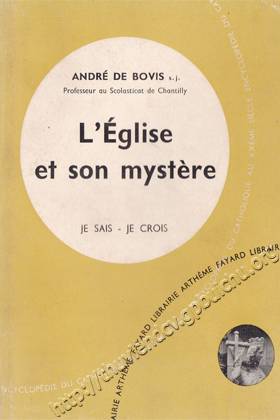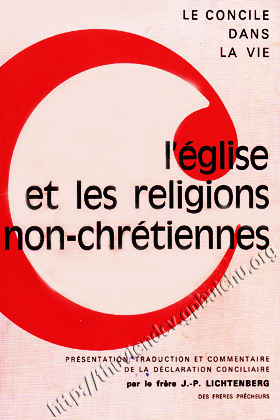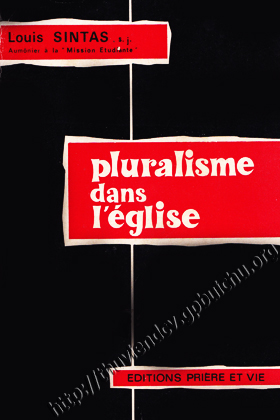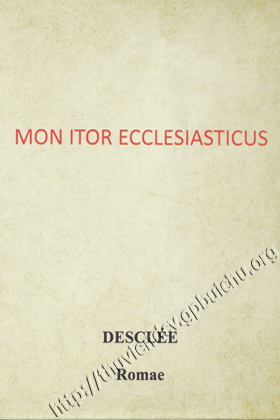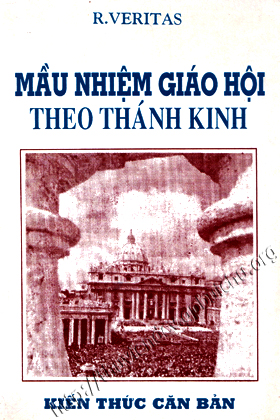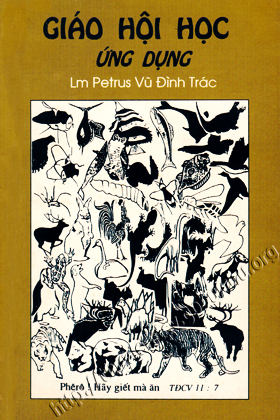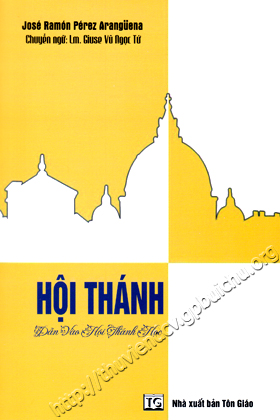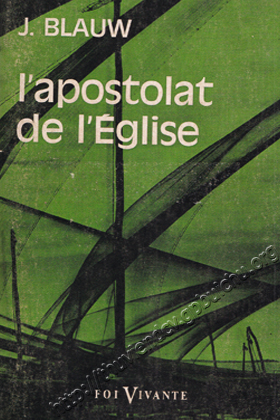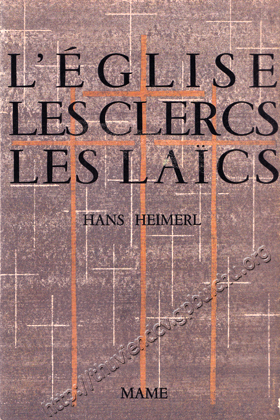
| Church | |
| Phụ đề: | The Human Story of God |
| Tác giả: | Edward Schillebeeckx |
| Ký hiệu tác giả: |
SC-E |
| DDC: | 262 - Giáo hội học |
| Ngôn ngữ: | Anh |
| Số cuốn: | 1 |
Hiện trạng các bản sách
|
||||||||||||||||
» Thêm vào danh sách tác phẩm yêu thích
| Foreword | xiii |
| A Guide to the Book | xvii |
| Chapter 1: World History and Salvation History, History of Revelation and History of Suffering | 1 |
| 1. Introduction: who or what brings human beings salvation and liberation? | 1 |
| 2. "No salvation outside the world" | 5 |
| I. The experience of radical contrast in our human history | 5 |
| II. The process of liberation in human history as the medium and meterial of divine revelation | 6 |
| III. The difference between the history of salvation and the history of revelation | 9 |
| IV. Religions and churches as the sacraments of salvation in the world | 13 |
| 3. Experiences of revelation: in the secular and religious sense | 15 |
| Introduction | 15 |
| I. The cognitive structure of human experiences | 15 |
| A. Experience and the tradition of experience | 15 |
| B. Concealed elements in our experiences: experience and ideology | 16 |
| 1. The ideological use of language | 17 |
| 2. Suspicion about suppressed use of language | 17 |
| 3. The danger of an appeal to our talk of "direct experiences" | 18 |
| 4. Language and the specific social posion of the speaker | 18 |
| 5. Language and the use of models | 19 |
| 6. Elements of projection in language | 19 |
| 7. Non-religious elements in the use of religious language | 20 |
| Conclusion | 20 |
| II. Experiences of revelation in everyday- human, secular language | 22 |
| A. "That was-or"You were"- a revelation to me" | 22 |
| B. The changing density of revelation in human experiences | 23 |
| III. Religiuos experiences of revelation | 24 |
| A. The religiuos use of human categories of experience | 24 |
| B. revelation in religiuos experiences: "divine revelation" | 27 |
| 4. Experiences subjected to the criticism of stories of suffering | 28 |
| I. Resistance: the truth and authority of suffering and oppressed men and women | 28 |
| II. Liberating "autonomous ethics" within a context of faith | 30 |
| 5. Old biblical and present-day Christian experiences of faith | 33 |
| I. Tradition and situation: a definition of concepts | 34 |
| II. Encounter between different cultures and traditions of faith | 36 |
| III. Present-day society and culture comes within the understanding of revelation | 40 |
| Chapter 2: Men and Women in Search of God, God is Search of Men and Women | 46 |
| 1. Why God has become a problem for Western men and women | 46 |
| I. External factors | 46 |
| A. No need for a "dualistic" posing of the problem | 46 |
| B. Difficulties over belief in God in the moderb Western world | 49 |
| C. The present "world context" of belief in God | 53 |
| II. Internal factors | 55 |
| A. "You are a hidden God" (Isaiah 45.15) | 55 |
| B. Belief in God and its instituitionalization in the church | 59 |
| C. Belief in God at odds with official church morality | 61 |
| 2. Religious as the concrete context of talk about God | 62 |
| I. Talking about and to God within the context of a tradition religious experience or a religion | 62 |
| II. Talking about God within philosophical reflection on one's own religious attitude | 63 |
| III. God: as a so-called "extra-religious", autonomous philosophical question | 64 |
| IV. The "theological passive" in talk about God in a secularized world | 65 |
| V. "Good heavens", "My God", as echoes of a religious society in a secularized world | 65 |
| Conclusion | 65 |
| 3. The mystical or theological depth-dimension of human existence | 66 |
| I. Are faith in God, prayer and mysticism one? | 66 |
| II. Mystical silence and mystical talk about God | 72 |
| III. The absolute limit | 77 |
| IV. The rationality of belief in God | 80 |
| A. Christian, Jew, Budddist, Muslim, by birth- or "nothing" | 80 |
| B. The meta-ethical or religious basis of the human praxis of justice and love | 83 |
| 1. In search of criterion | 83 |
| 2. Experiences of the aporia of God's omnipotence and helplessness | 85 |
| 3. Ethics as a religious challenge | 91 |
| Conclusion | 98 |
| 4. Letting God be God | 99 |
| Chapter 3 | |
| Christians find God above all in Jesus Christ | 102 |
| Introduction | 102 |
| 1. Unity and tension between "Jesus of Nazareth" and the "Christ of the church's faith" | 103 |
| Preface | 103 |
| 1. Jesus of Nazareth and Jesus Christ | 104 |
| 2. What the historical-critical method teachs the believer | 105 |
| 3. The process of the growth of scripture as a witness to the church's mediation in the transition from "Jesus" to "Christ" | 107 |
| 2. The career of Jesus, confessed as the Christ | 111 |
| I. The theocentric focus of Jesus' message and career: the kingdom of God as the real "cause of Jesus" | 111 |
| A. The message of the kingdom of God and renewal of life (metanoia) | 111 |
| B. Parables of the kingdom of God | 114 |
| C. Jesus' praxis of the kingdom of God | 116 |
| D. The kingdom of God and Jesus' career | 118 |
| E. The career and death of Jesus | 119 |
| F. Jesus' message and career raise a new question | 121 |
| II. From the theocentricity of Jesus to the christtocentricity of the New Testament and the church | 123 |
| A. From Jesus who speaks to us of God to the church which speaks to us of Christ | 123 |
| B. The saving significance of Jesus's life and death | 124 |
| C. Belief in the resurrection of Jesus | 127 |
| III. The kingdom of God: "already and not yet" | 132 |
| A. Present-day experience of the kingdom of God as the foundation of a firm hope in a final consummation planned by God | 132 |
| B. Is there a counterpart to this fourfold 'heavenly" vision of the future for 'evil people'? | 134 |
| 3. The kingdom of God: universal creation and salvation from God in a paticular person, Jesus Christ | 139 |
| I. Men and women as God's story on the model of the Davidic King | 139 |
| II. God's trust in human beings is finally not put to shame in Jesus | 142 |
| 4. The unique and definitive character of the mission of Jesus Christ as a historical task and the basis for the church and its mission in the world | 144 |
| Introduction | 144 |
| I. The church: in the power of the Spirit, the witness to the career of Jesus | 146 |
| A. The ekklesia of God: community of God | 146 |
| B. The Jewish roots of the church's Christianity | 147 |
| C. The church: a witness to Jesus's way towards the kingdom of God | 154 |
| D. The past: living recollection of Jesus (the church tradition), and the present: the Holy Spirit | 157 |
| E. "Communion" and instituition | 158 |
| II. Good and bad questions in connection with the uniqueness of the Christian church | 159 |
| III. The universality and historical contingency of Jesus's career | 164 |
| IV. Specific present-day forms of Christian universality or catholicity | 168 |
| V. The universality of Jesus in connection with the question of the universal meaning of history | 171 |
| A. Experience of meaning and truth | 171 |
| B. The Christian experiental tradition as a practical anticipation of universal meaning | 175 |
| C. Orthodoxy is at stake in orthopraxis | 177 |
| VI. The God who escapes all our identifications | 179 |
| VII. Consequnces for the church's mission | 182 |
| Chapter 4 | |
| Towards Democartic Rule of the Church as a Community of God | 187 |
| Introduction | 187 |
| 1. The specific historical face of the church | 188 |
| I. Abstract and historically coloured ecclesiologies | 188 |
| II. The mystert of the church according to Vatican II | 189 |
| A. The kingdom of God and the Christian churches | 189 |
| B. "Ecclesia sancta" (one, holy, catholic and apostolic), "sed semper purificanda" | 195 |
| III. The so-call "classical" face of the church and the other face (with a more biblical profile) | 198 |
| A. The church as a pyramidal hierachy | 198 |
| B. The intensification of the hierarchical character of the church: its anti-democratic face between the French Revolution and the period before Vatican II | 199 |
| C. New post-Vatican perspectives inspired by the "liberal" Second Vatican Council | 207 |
| D. Stemming the tide of the breakthrough at Vatican II, subsequently legitimated by an ideological appeal to the term "church as mystery" | 210 |
| 2. Democratic government of the church through its ministers | 214 |
| Introduction | 214 |
| I. Speaking with authority and letting oneself be told: the subjection of the whole church to the Word of God | 214 |
| II. The Holy Spirit, foundation of all authority, including official authority, in the church, and the variety of instruments through which it works | 216 |
| A. The Holy Spirit, source of all authority in the church | 216 |
| B. Instrinsic theological reasons for the democratic exercising of authority in the church | 220 |
| 1. The instruments of the Holy Spirit | 220 |
| 2. The vulnerable rule of God as a model for ministerial authority in the church | 221 |
| 3. The interplay of official teaching authority and the teaching authority of believers and their theologians (always in some tension) | 223 |
| Chapter 5 | |
| By Way of an Epilogue | 229 |
| 1. Has the church still a future? | 229 |
| 2. The worldly or cosmic aspect of the kingdom of God | 234 |
| Notes and Bibliography | 247 |
| Divided by chapter. At the beginning of the notes, also by chapter, can be found basic literature relating to the theme discussed in that chapter | |
| Index of Authors | 265 |




